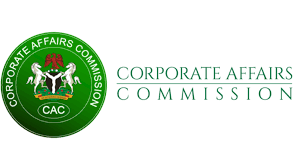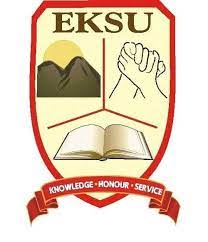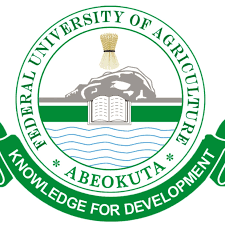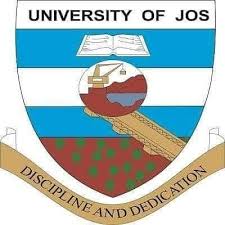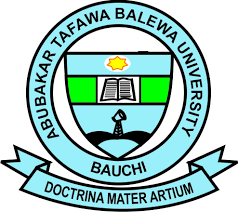
Every year, thousands of Nigerians dream of studying abroad but are held back by the high cost of tuition and living expenses. Thankfully, several international organizations and governments offer fully funded scholarships that cover all expenses — including tuition, accommodation, flight tickets, and even living stipends.
If you are a Nigerian student looking to further your education abroad without worrying about finances, here are ten of the best fully funded scholarships you should apply for before 2026.
1. Chevening Scholarship (United Kingdom)
What it covers: Tuition, living stipend, travel, visa support, and arrival allowances.
Who it’s for: Early- to mid-career professionals with leadership potential and work experience.
How to apply
- Confirm eligibility (citizenship, work experience, degree requirement).
- Choose two eligible UK master’s courses and identify how they link to your career plan.
- Create an online account on the official Chevening application portal.
- Prepare supporting documents: degree certificates, transcripts, references (names/emails), two course choices, and a clear CV.
- Draft four short essays (leadership, networking, career plan, why Chevening) tailored to Chevening’s priorities.
- Submit the online application before the deadline, then monitor your email for shortlist/interview invitations.
- If shortlisted, attend the interview (usually online or at a local British Council/Chevening office).
- If awarded, follow instructions for pre-departure and visa processes.
2. Commonwealth Scholarships (United Kingdom)
What it covers: Tuition, living allowance, travel, and research grants (where applicable).
Who it’s for: Graduates committed to development impact in their home country.
How to apply
- Check the specific Commonwealth scheme that fits your level (masters/PhD) and country eligibility.
- Prepare transcripts, degree certificates, research proposal (for research awards), CV, and references.
- Apply via the scholarship’s online application system or national nominating authority, depending on the stream.
- Tailor your application to show how your study supports national development goals.
- Attend interviews or selection panels if invited.
- Accept the award and complete any required administrative or visa steps.
3. Fulbright Foreign Student Program (United States)
What it covers: Tuition support, living stipend, airfare, and health insurance (varies by country).
Who it’s for: Graduates, researchers, and professionals seeking graduate study or research placements in the U.S.
How to apply
- Review the Fulbright country-specific instructions (Fulbright Nigeria or U.S. embassy education office).
- Choose programs and prepare a research/study plan or statement of purpose.
- Compile academic transcripts, letters of recommendation, standardized test scores (if needed), and a CV.
- Complete the online Fulbright application and upload required documents.
- Prepare for a possible in-person interview or panel.
- If recommended, follow US embassy instructions for pre-departure and visa application.
4. DAAD Scholarships (Germany)
What it covers: Monthly stipend, travel allowance, health insurance support, and sometimes tuition.
Who it’s for: Students and researchers with strong academic records intending to study or research in Germany.
How to apply
- Identify DAAD programs that match your academic background and goals.
- Gather transcripts, degree certificates, CV, research proposal (where relevant), language certificates (English/German) if required, and references.
- Create an application account on the DAAD portal (or apply via partner university where instructed).
- Upload your documents and submit before the specific program deadline.
- Await selection decisions and, if successful, follow instructions for placement and visa.
5. Erasmus Mundus Joint Master’s Scholarships (Europe)
What it covers: Tuition waiver, monthly stipend, travel and installation costs; study across multiple European institutions.
Who it’s for: High-achieving applicants to an approved joint master’s program.
How to apply
- Choose an Erasmus Mundus Joint Master programme that matches your subject area.
- Prepare transcripts, a strong motivation letter, CV, and proof of language proficiency.
- Apply directly to the programme consortium using the programme’s application portal.
- If accepted as a scholarship candidate, follow the consortium’s correspondence about placement, travel, and visas.
- Prepare to study at two or more European universities as required by the programme.
6. Australia Awards Scholarships (Australia)
What it covers: Full tuition, return airfare, living stipend, health insurance, and pre-departure training.
Who it’s for: Professionals and graduates from eligible countries committed to development outcomes.
How to apply
- Check the Australia Awards country eligibility and priority study areas.
- Prepare transcripts, references, a development-focused personal statement, and proof of work experience (if required).
- Complete the online application for Australia Awards or the country-specific portal.
- Attend any interviews or selection assessments as required.
- If successful, complete pre-departure steps and visa applications with Australian immigration.
7. MEXT Scholarships (Japan)
What it covers: Tuition waiver, monthly allowance, travel costs, and settlement allowance.
Who it’s for: Undergraduates and postgraduates applying through embassy recommendation or university recommendation.
How to apply
- Decide whether you’ll apply through the Japanese Embassy (embassy recommendation) or directly through a Japanese university (university recommendation).
- Prepare academic transcripts, degree certificates, research proposal (for postgraduate applicants), recommendation letters, and a medical certificate if required.
- Submit hard-copy documents where embassy channels are used; follow the embassy’s instructions carefully.
- Attend any required examinations or interviews conducted by the embassy or university.
- If selected, follow MEXT and embassy guidance for visa and pre-departure.
8. Rhodes Scholarship (University of Oxford, West Africa constituency)
What it covers: University and college fees, stipend, and travel.
Who it’s for: Exceptional students from defined regions (West Africa constituency includes Nigeria) with remarkable leadership and academic records.
How to apply
- Confirm you meet the constituency’s eligibility (age limits, degree requirements).
- Prepare academic transcripts, referee letters, CV, and a personal statement emphasizing leadership and service.
- Complete the Rhodes online application for your constituency and submit by the deadline.
- If shortlisted, prepare for interviews and any additional selection requirements.
- If awarded, attend any orientation and handle visa/university enrolment tasks.
9. Schwarzman Scholars Program (China)
What it covers: Tuition, accommodation, travel, study tours, and stipend.
Who it’s for: Young leaders wanting a one-year global affairs program based at Tsinghua University.
How to apply
- Review eligibility and prepare transcripts, personal essays, CV, and two references.
- Complete the Schwarzman Scholars online application, including essays and any required tests.
- Submit early and prepare for interview assessments if shortlisted.
- Follow the program’s onboarding and visa guidance if accepted.
10. Mastercard Foundation Scholars Program (Partner Universities)
What it covers: Tuition, living expenses, mentoring, internships, and wraparound support.
Who it’s for: Talented African students committed to community impact; offered through partner universities.
How to apply
- Identify partner universities and programmes that host Mastercard Foundation scholarships.
- Apply to the partner university using their admissions portal and indicate interest in the Mastercard Foundation scholars pathway where required.
- Gather strong documentation: transcripts, references, personal statements focused on community impact, and any financial background statements requested.
- Participate in partner university selection processes, which may include interviews or additional assessments.
- If selected, complete registration and scholarship onboarding steps with the university.
Universal step-by-step application checklist (use this for every scholarship)
- Confirm eligibility: nationality, academic level, work experience, age limits.
- Choose the right program: align your study choice with the scholarship mission and your career plan.
- Prepare key documents: passport, degree certificate, transcripts, CV, personal statement(s), research proposal (if applicable), language test scores, and references.
- Ask referees early: give them templates and deadlines; confirm they will submit their letters on time.
- Proofread and tailor: tailor personal statements to the scholarship’s values and proofread for clarity and impact.
- Submit electronically or by designated method: follow the scholarship’s instructions exactly (some require online portals; some need hard copies via embassy).
- Track your application: keep records of submission receipts, tracking numbers, or login details.
- Prepare for interviews: research common interview questions and practice concise answers that show impact and vision.
- Follow award instructions: if selected, promptly supply requested documents and follow pre-departure steps (medicals, visa, insurance).
- Keep copies: retain digital and certified hard copies of all submitted documents.
Common mistakes to avoid
- Sending incomplete applications or missing required attachments.
- Reusing a generic personal statement across multiple scholarships.
- Waiting until the last minute to ask referees for letters.
- Ignoring small eligibility details like age limits or work experience minimums.
- Forgetting to convert documents to the required language and format.
Frequently Asked Questions (FAQs)
1. Are these scholarships truly fully funded?
Most of these awards are designed to be fully funded—covering tuition, living costs, and travel—but exact benefits and exclusions vary by program. Always read the scholarship’s benefit summary carefully.
2. Can Nigerians apply for all these scholarships?
Yes. Candidates from Nigeria are eligible for the scholarships listed, but some awards have constituency or country-specific rules, so confirm exact eligibility before applying.
3. Do I need IELTS/TOEFL or other tests?
Many English-speaking programmes require IELTS or TOEFL. Some scholarships accept alternatives or waive testing if your prior education was in English. Check each scholarship’s language policy.
4. How early should I start applying for 2026 intakes?
Start preparing at least 6–12 months before the earliest application deadlines. That gives you time for tests, referees, document certification, and any embassy procedures.
5. What makes a scholarship application stand out?
A focused, authentic personal statement; clear evidence of leadership or community impact; strong referees; and a study plan that ties directly to career and national development goals.
6. Can I apply to multiple scholarships simultaneously?
Yes—many applicants apply to more than one award. Prioritize quality over quantity: focus on applications you can tailor well.

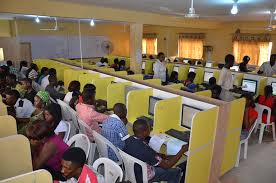
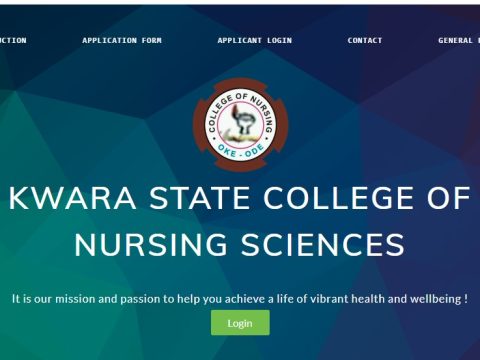
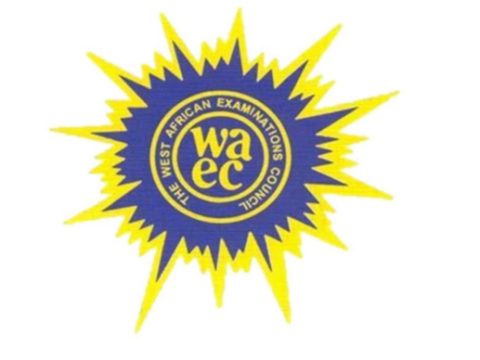
![EKSU Cut Off Mark 2025/2026 [All Courses] EKSU Cut Off Mark 2025/2026 [All Courses]](https://myeduplug.com/wp-content/uploads/2025/01/EKSU.jpeg)
![FUOYE Cut Off Mark 2025/2026 is Out [All Courses] FUOYE Cut Off Mark 2025/2026 is Out [All Courses]](https://myeduplug.com/wp-content/uploads/2025/07/FUOYE-1.jpeg)
![UNIJOS Cut Off Mark 2025/2026 is Out [ All Courses] UNIJOS Cut Off Mark 2025/2026 is Out [ All Courses]](https://myeduplug.com/wp-content/uploads/2025/08/UNIJOS-1.jpeg)
![ATBU Cut Off Mark 2025/2026 is Out [All Courses] ATBU Cut Off Mark 2025/2026 is Out [All Courses]](https://myeduplug.com/wp-content/uploads/2025/08/ATBU-1.png)
![UNIABUJA Cut Off Mark 2025/2026 is Out [All Courses] UNIABUJA Cut Off Mark 2025/2026](https://myeduplug.com/wp-content/uploads/2025/03/UNIABUJA-POST-UTME-Form-Is-Out-For.jpeg)


